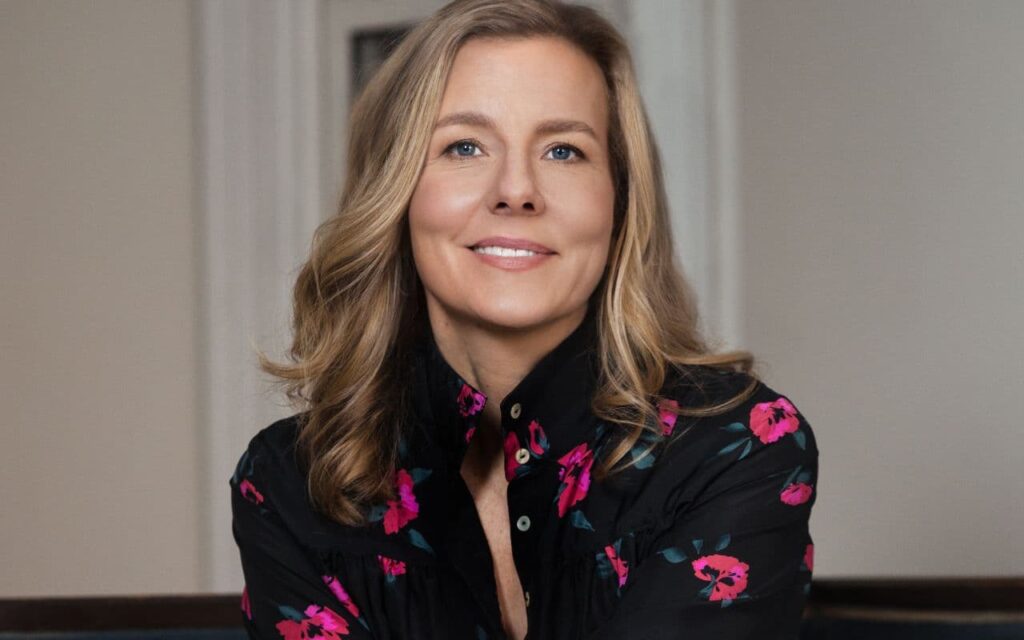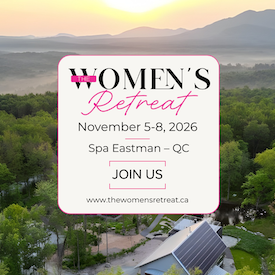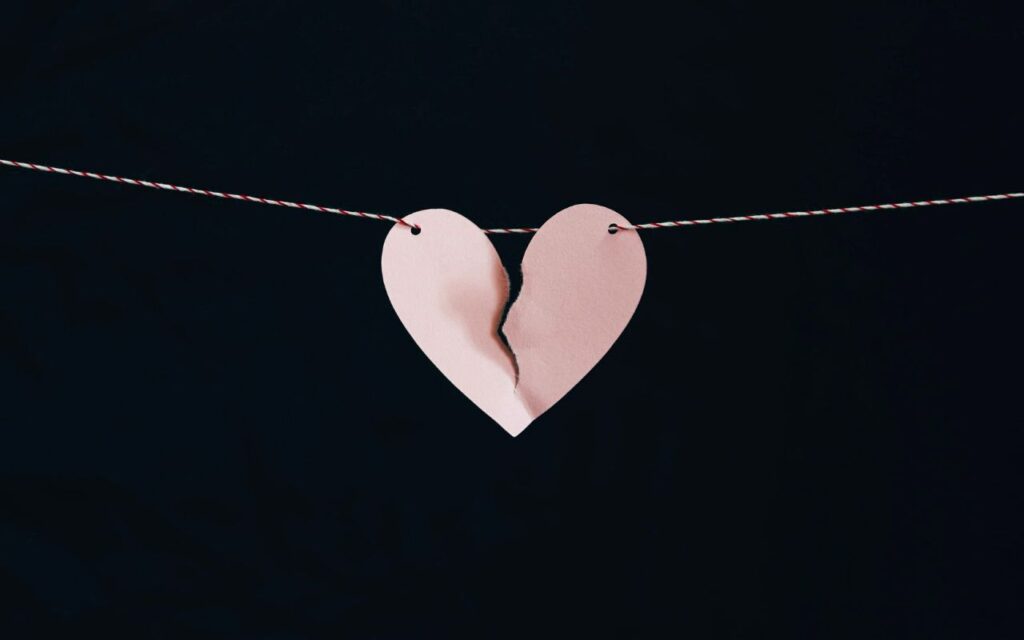
Jennifer Stewart: I want to start with your latest book, How to Survive a Bear Attack. But I want to set context first for our listeners who don’t know what happened in Algonquin Park in the ’90s. Can you talk to us about the bear attack – what happened, and how that influenced your journey as a writer?
Claire Cameron: So it was in October 1991. A couple went on a camping trip, and they were in Algonquin Park. They left from the Opeongo store, which is one of the biggest entry points to the park. They left the dock at 5:30 in the evening and were never seen again.
On the Tuesday of that long weekend – Thanksgiving in Canada – their family and friends missed them and called the park office. A search party was sent out, and their bodies were found at the campsite. As the search party went to look for them, a bear rushed. So that was the beginning of piecing together the story for the park officials and the first responders who were there at the time.
I went to a summer camp the year before and after this happened. The first I heard of it – which I think was the same for a lot of people – was when it was on the front page of The Globe and Mail, which used to be a huge deal. In that story, the bear was described as “308 pounds of black fury,” and I remember that so clearly.
I also remember reading that the attack happened on Bates Island, and it sounded to me like a horror movie – you know, Bates, Norman Bates in Psycho – and it sort of sparked my imagination in the worst way. At the same time, I knew black bears. I knew them as overgrown raccoons that come and lick your barbecue, and you clap and they run off. I knew them as shy, anxious creatures that avoided humans.
So I couldn’t reconcile what I knew of black bears with “308 pounds of black fury.” I just couldn’t put those two together. I think I became haunted by this attack for many years, and my fear sort of wedged itself between what I thought I knew and what I’d heard.
Catherine Clark: To follow up on that – just for readers who haven’t yet read your book and who may not be aware of the story – the attack was not just unusual, but particularly vicious, and therefore unusual because black bears don’t normally attack in the way that this one did. So this really gripped public consciousness as well. It clearly gripped you. What brought you back to the idea of writing this book? What was the impetus?
Claire Cameron: This attack is so rare because two people were killed. It’s much more common, if a black bear does attack someone, that it’s one person on their own. But even that only happens about once a year in North America. You’re much more likely to get struck by lightning, and way more likely to get in a car accident.
I think that drove part of my obsession with this attack. I wrote a novel called The Bear in 2014, and that was at a stage when I was a young mother. I had been living in London, England, and was moving back to Toronto, thinking about taking my kids into the wilderness. I kept having thoughts of this attack – is this a safe thing to do, when I know this kind of thing can happen?
I also knew that was a ridiculous question. I’d been around a lot of black bears by then, and I wasn’t really scared of them. But I had this fear playing up in the back of my mind. So that was kind of the first iteration.
I was actually talking to a woman about that novel the other day, and she said how it’s told through the eyes of a child – it sounds quite horror – but it’s because you’re looking over her shoulder as the reader, and you know things that she doesn’t. I said to her, “Yeah, I think I was trying to write my fears down, to put them on paper and make them go away.” And she said, “Well, thanks, because you gave them all to me.” Lovely. Whoops.
Then, in 2018, I was diagnosed with cancer – melanoma – which is the deadliest kind of skin cancer, and my father had also died of this disease. It was during my recovery from the operation I had for cancer that I started getting obsessed with this bear attack again. I realized I hadn’t laid it to rest at all. If anything, I’d gotten so wrapped up in the fictional side that I didn’t actually know what had happened.
I had this thought that if I found out exactly what happened and laid my questions to rest, I could exist in reality rather than in this sort of nightmare scenario that I’d imagined. I was trying to use facts to ground my fear, I guess. And that became the start of this book.
Jennifer Stewart: It was really interesting reading the book, because it actually took me a bit of a reframe to think, “Okay, Claire wasn’t at the site.” This was just an event she heard about – in a place that she loved – and she couldn’t fathom that something so destructive could happen in a place she felt such peace.
And then this notion of control – you’ve had so many things in your life, like we all do, that you’ve had no control over: your father’s very tragic passing, your diagnosis, and then this ideal representation of Algonquin Park that you had in your head being torn away. Did you gain back a sense of control, or a new reflection on what control means in your life, through writing this book?
Claire Cameron: My father died when I was nine years old. He had melanoma – skin cancer – and it was really… I don’t know. I’m sure some of your listeners have had experience with loved ones who had cancer in the ’80s. It’s still horrific now, but back then the treatments, like chemo, were more like a flamethrower – they’re so much more precise today.
My dad was six foot five, and by the end of his life he’d dropped to about 100 pounds. He just wasted away. He died at home, which was where he wanted to be. As a nine-year-old, it was hard to watch and hard to be part of – and hard to see my mom go through it as well.
I kind of went numb after that. I remember my sister crying, and I wasn’t sure why she was crying, because I couldn’t understand. I thought, tears aren’t going to bring him back – why would you? In other words, I was detached and numb.
What really brought me back to life was discovering canoeing and going out into the wild – on rivers and lakes. It sparked this outdoors side of me that I’ve had ever since. It helped me reconnect with the land, and with people too. When you’re on a canoe trip with a group, you get so close to people. If you burn the rice and someone forgives you, you really appreciate them. It bonds you forever – there’s something about being together in wet socks.
That was the start of my outdoor career. I went on to become an Outward Bound instructor, a tree planter, and that outdoor life was really at the centre of everything – it’s even how I met my husband.
Then, when I was diagnosed in 2018, they tested me for hereditary genetics, and I learned I have a gene called CDKN2A, which means I’m very prone to melanoma and other cancers – more than your average person. My surgeon said, “The one thing you can do is not be in the sun.” And I said, “Oh no, sorry, it’s me – I need to go outside.” I’ve been on glaciers and lakes my whole life. He said, “It’s impossible to have no UV exposure, but you’ve got to try to aim in that direction.”
That changed my whole life inside out. So that’s a very long answer to your question, but that was when my sense of control was blown wide open. I had a reaction I think a lot of cancer survivors have – you start to control your diet, your routines, anything external – because cancer is a wild replication of cells. It’s growth out of control.
So I went through that stage. But in the course of writing this book, I really learned the value of letting go – of understanding what it means not to be in control. I think that’s what this book is fundamentally about: me coming to terms with that.
Catherine Clark: We’ve been talking a lot about your most recent book, How to Survive a Bear Attack, and you mentioned the bear story earlier. But you’ve written several other novels, and one that really stayed with me was The Last Neanderthal. I still think about certain parts of that book at random moments.
Your writing often explores themes like resilience, survival, and motherhood. But survival in particular feels like a thread that runs through everything you write. Is that something you consciously set out to explore, or am I reading too much into it?
Claire Cameron: Oh no, you’re absolutely right – I’m obsessed with it. I think for so long, survival has been framed as something masculine, something about brute strength. But I don’t see it that way at all. Feats of survival happen around us every day, and they don’t always look like wilderness expeditions. You draw on incredible reserves of strength in the most ordinary circumstances – like giving birth. Honestly, that’s the most heroic, powerful thing I’ve ever done. And yet we tend to treat it as this quiet, everyday “women’s work” that happens in the background.
When I talk to other women, though, I realize how deeply transformative it is. My second son’s birth really showed me that. He’s six foot four now – asleep in the next room – but he was also huge when he was born: ten and a half pounds!
A regular birth – though we didn’t know how big he was going to be. My first baby was six and a half pounds, so the doctor thought it would be similar. But this time, there were complications. I had a heart monitor beside me, and as I pushed, I noticed it start to slow. Suddenly a team rushed in – it turned out the umbilical cord was wrapped twice around his neck. The head doctor came right up to me and said, “You have one push to get this baby out.”
And in that moment, it hit me – this was survival. For both of us. I could feel panic rising, but something in me said, that’s not an option. Then I had this overwhelming sense of connection – of all the women who had come before me, who had done this exact thing for generations. It was like they were standing behind me, one after another, a chain of strength. I drew on that. I felt like they had my back.
That experience really inspired The Last Neanderthal. For me, it’s the original survival story – one that’s collective, not solitary. Survival isn’t about the lone hero with an axe in the wilderness. It’s about connection, collaboration, and women supporting each other through the hardest things imaginable.
Jennifer Stewart: If you could go back and tell your younger self one thing before sitting down to write your first novel, what would it be?
Claire Cameron: That’s a great question. I think I’d tell myself to let go – to stop trying to control the writing. The funny thing is, I’ve never actually been in control of it, so maybe that worked out. But I’d tell myself not to worry so much about the career side of things – the parts you can’t control as a writer.
I’ve always known that, at least intellectually, but it’s hard to live it. Now that I’m 52, I can look back and see that my instinct was right – not to dwell too much on outcomes, but to just trust the process and lean into it.
Especially when my kids were little and I wasn’t writing as much, I remember feeling this panic that I was falling behind, or that I’d drop out of the literary world altogether. I wish I could tell that younger version of me to breathe, to relax, and to trust that it would all come together in its own time.







